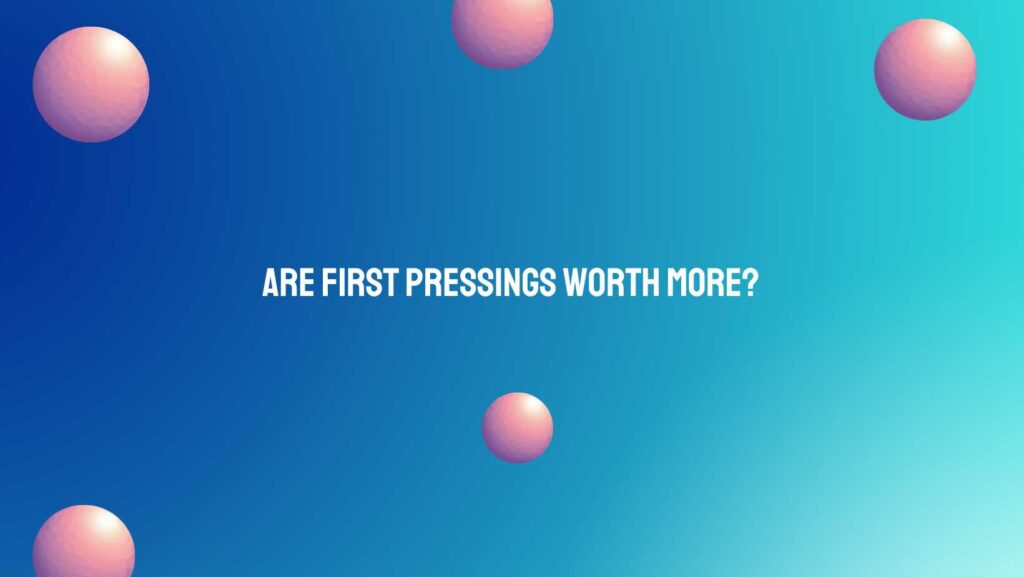For vinyl collectors and enthusiasts, the allure of vintage records is undeniable. These physical artifacts carry a piece of music history, and their scarcity often adds to their mystique. Among the many factors that influence the value of a vinyl record, the status of being a “first pressing” is frequently discussed and debated. In this comprehensive article, we will delve into the concept of first pressings and explore whether they are truly worth more in the world of vinyl collecting.
What Is a First Pressing?
A first pressing, often referred to as an “original pressing,” denotes the initial manufacturing run of a vinyl record when it was first released to the public. It is the earliest version of a record that was produced and distributed, typically shortly after the album’s release date. First pressings are sought after by collectors for several reasons, but it’s important to understand the factors that contribute to their perceived value.
Factors Influencing the Value of First Pressings:
- Historical Significance: First pressings often hold historical significance because they represent the album’s initial introduction to the public. They may be associated with key moments in music history or cultural movements.
- Sound Quality: Some collectors believe that the earliest pressings offer superior sound quality because they were mastered using the original analog tapes before any subsequent copies or reissues. This can result in a warmer or more authentic sound that resonates with audiophiles.
- Unique Features: First pressings may include unique features or variations not present in later editions. These can include different cover artwork, labels, or inserts that make them distinctive and collectible.
- Limited Availability: Over time, records can degrade, get damaged, or simply disappear from circulation. First pressings, being among the oldest copies available, can become scarce, adding to their value.
- Collectors’ Demand: The demand among collectors for first pressings can drive up their market value. Collectors often seek these editions to complete their collections or own a piece of music history.
Are First Pressings Always Worth More?
While first pressings can be highly collectible and command premium prices, their increased value is not guaranteed for every record. Several factors come into play:
- Artist and Album Popularity: The value of a first pressing is heavily influenced by the popularity of the artist and the album. Iconic or groundbreaking records by renowned artists are more likely to see a significant increase in value.
- Condition: The condition of a first pressing is paramount. Records in excellent or near-mint condition, with well-preserved covers and minimal wear, tend to be more valuable than those in poor condition.
- Rarity: Some first pressings may not be particularly rare or desirable, especially if the album had a large initial production run or was not commercially successful.
- Specific Pressing Details: Certain first pressings may have unique details that distinguish them from later pressings, making them more valuable. These details can include label variations, matrix numbers, or cover variations.
- Market Trends: The value of first pressings can fluctuate over time due to changes in market demand and trends among collectors.
Conclusion
In summary, first pressings of vinyl records can indeed be worth more, but their value is contingent on various factors, including the artist’s popularity, album significance, condition, rarity, and collector demand. While owning a first pressing can be a source of pride for collectors and audiophiles, the enjoyment of music should remain the primary focus. Collectors should also consider their personal preferences and budget when deciding whether to invest in first pressings or later editions of vinyl records. Ultimately, the worth of a vinyl record goes beyond its monetary value, as it carries the timeless magic of music that transcends eras and generations.


